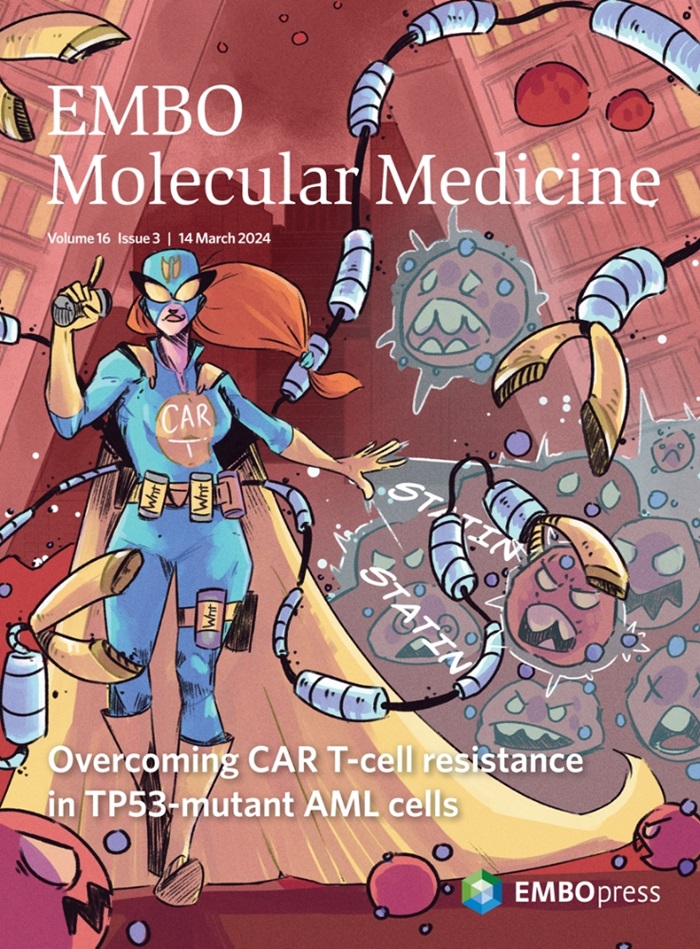抗氧化剂对癌症进展的影响。
IF 9
1区 医学
Q1 MEDICINE, RESEARCH & EXPERIMENTAL
引用次数: 0
摘要
抗氧化剂补充剂因其承诺的健康益处而被广泛销售,包括癌症预防和治疗支持。这种观点源于活性氧(ROS)水平过高导致细胞大分子氧化损伤的观点。然而,抗氧化剂的作用是高度依赖于环境的,受化合物类型、剂量和癌症类型的影响。虽然抗氧化剂可以减缓特定癌症(如myc驱动的淋巴瘤)的肿瘤进展,但它们可以加速其他情况下的肿瘤生长、转移和血管生成,包括kras驱动的肺癌和braf驱动的黑色素瘤。一些抗氧化剂也可能以支持癌症治疗的方式影响免疫系统,如免疫检查点封锁。在这里,我们回顾了最近的研究,强调抗氧化剂在癌症进展中的复杂作用,并讨论了它们对临床实践的潜在影响。本文章由计算机程序翻译,如有差异,请以英文原文为准。
Effects of antioxidants on cancer progression.
Antioxidant supplements are widely marketed for their promised health benefits, including cancer prevention and therapy support. This belief stems from the idea that excessive levels of reactive oxygen species (ROS) cause oxidative damage to cellular macromolecules. However, the effects of antioxidants are highly context-dependent and influenced by the compound type, dosage, and cancer type. While antioxidants may slow tumor progression in specific cancers such as MYC-driven lymphoma, they can accelerate tumor growth, metastasis, and angiogenesis in other settings, including KRAS-driven lung cancer and BRAF-driven melanoma. Some antioxidants may also influence the immune system in ways that support cancer therapies, such as immune checkpoint blockade. Here, we review recent studies that highlight the complex roles of antioxidants in cancer progression and discuss their potential implications for clinical practice.
求助全文
通过发布文献求助,成功后即可免费获取论文全文。
去求助
来源期刊

EMBO Molecular Medicine
医学-医学:研究与实验
CiteScore
17.70
自引率
0.90%
发文量
105
审稿时长
4-8 weeks
期刊介绍:
EMBO Molecular Medicine is an open access journal in the field of experimental medicine, dedicated to science at the interface between clinical research and basic life sciences. In addition to human data, we welcome original studies performed in cells and/or animals provided they demonstrate human disease relevance.
To enhance and better specify our commitment to precision medicine, we have expanded the scope of EMM and call for contributions in the following fields:
Environmental health and medicine, in particular studies in the field of environmental medicine in its functional and mechanistic aspects (exposome studies, toxicology, biomarkers, modeling, and intervention).
Clinical studies and case reports - Human clinical studies providing decisive clues how to control a given disease (epidemiological, pathophysiological, therapeutic, and vaccine studies). Case reports supporting hypothesis-driven research on the disease.
Biomedical technologies - Studies that present innovative materials, tools, devices, and technologies with direct translational potential and applicability (imaging technologies, drug delivery systems, tissue engineering, and AI)
 求助内容:
求助内容: 应助结果提醒方式:
应助结果提醒方式:


